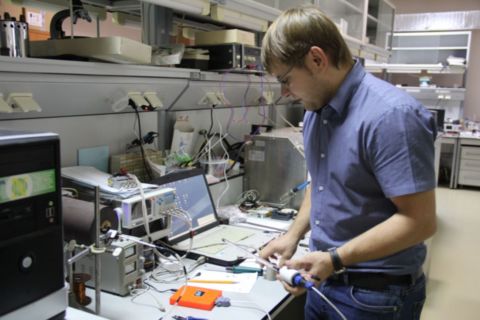A regular meeting of the Program Committee was held at SUSU, at which 10 scientific projects applying for funding from the Priority 2030 program were considered. Managers reported on the relevance of their strategic projects, work plan for 2024, expected results and the necessary resources to achieve them.
The Intelligent Manufacturing strategic project is represented by six subprojects that correspond to the key goal: ensuring digital transformation and increasing the competitiveness of enterprises in metallurgy, mechanical engineering, energy and the defence industry of the Ural region and Russia through the implementation of condition management systems, robotization and diagnostics of equipment, technological processes and products.
It is important to note that during the defence of its report on the implementation of the program in 2023, our university announced a new direction called Robotics, and now three subprojects are devoted to it. As part of this work, it is planned to create youth laboratories as new growth points for the university, making it possible to form a system for attracting and retaining not only talented researchers, but developers as well.
The New Non-conventional Materials strategic project is represented by two subprojects, one of which is the established interdisciplinary team of scientific schools on high-entropy materials lead by E.A. Trofimov, and on the research and production of powder metal materials lead by M.N. Samodurova. The project team includes a large number of young people: postgraduates, students, specialists, including foreign ones, working full-time at the university.

The strategic project "Eco-environment of Post-industrial Agglomerations" is also represented by two subprojects. They imply modernization of software products created at previous stages of the implementation of the Priority 2030 program and are aimed at monitoring emissions into the environment.
Almost all projects heard by the Program Committee have an industrial partner interested in the stated results.
During the discussions of the projects, questions were raised about the applied results of the projects, their implementation and commercialization, and cooperation with other departments that have the necessary competencies.
The decision to support projects will be made collectively based on the results of voting by members of the Program Committee.




